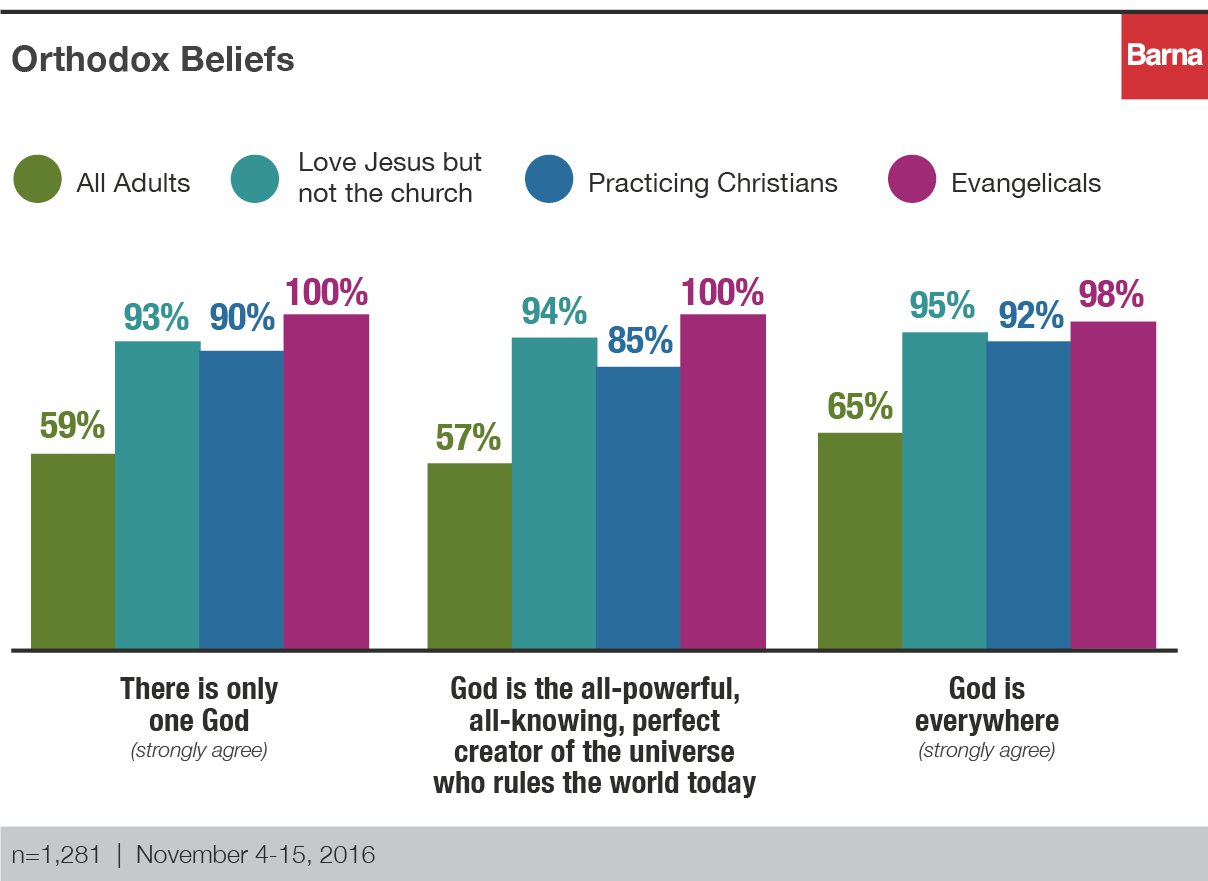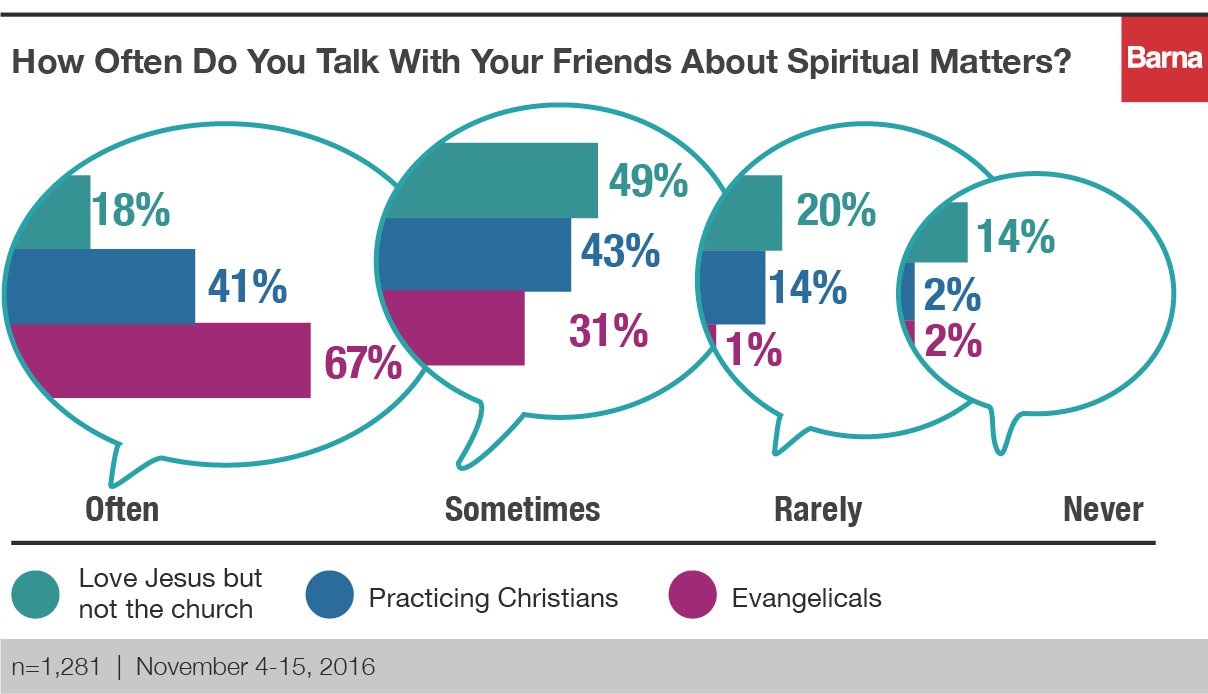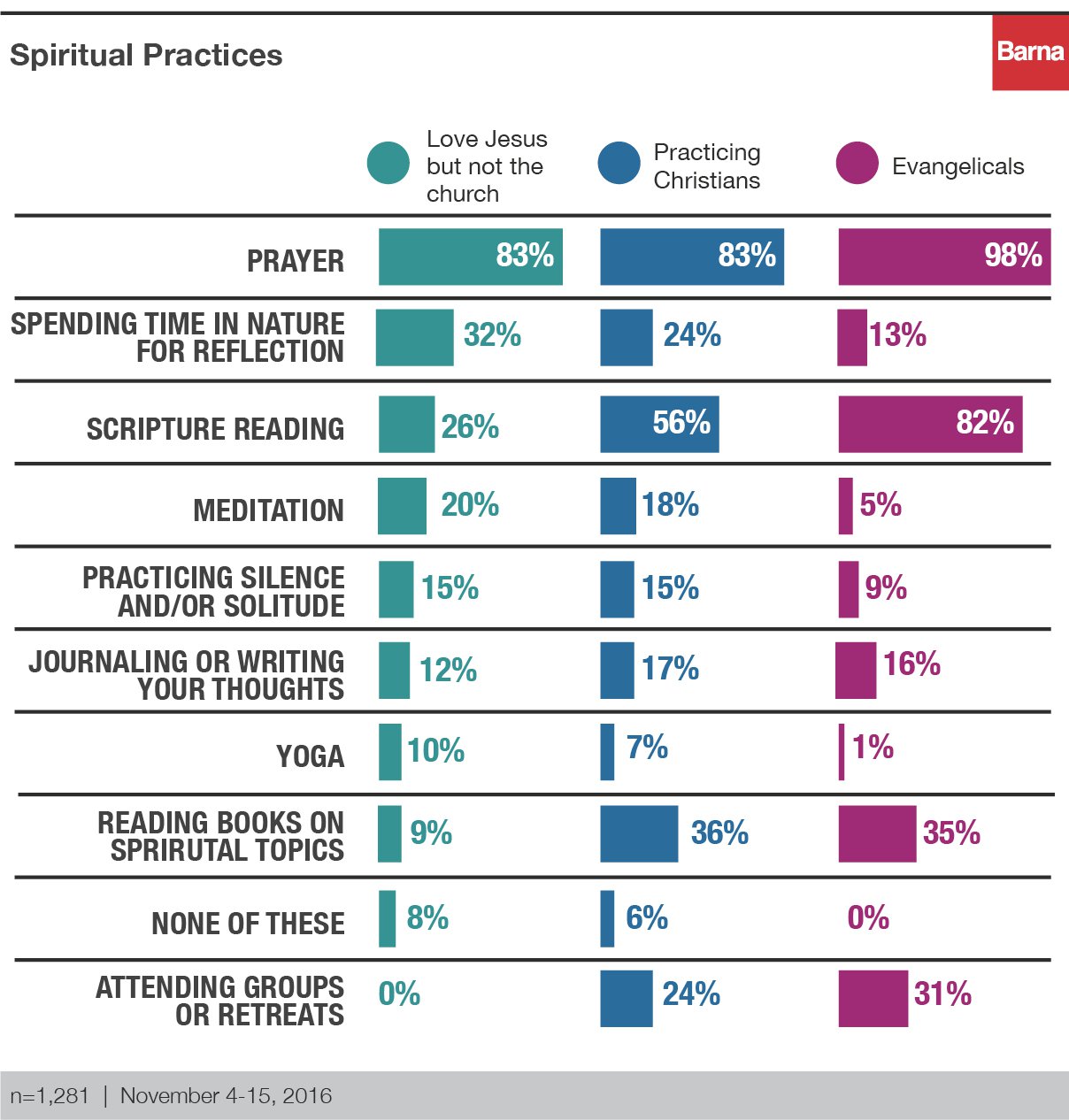When you ask someone about their faith, expect to hear a qualifier.
Of course, there’s “spiritual but not religious,” a category that 11 percent of Americans now fall into, according to Barna Group research. (The figure could be at least double that if applied to all without a particular religious affiliation, often referred to as the “nones.”)
But even Christianity comes with caveats. Some try to change up the term by saying, “I’m not a Christian, but a Christ-follower.”
#ImChristianBut trended on Twitter a couple years ago, in the wake of a BuzzFeed video of young Christians butting against what they saw as negative stereotypes of Christians. They said lines like “I’m Christian, but I’m not homophobic” and “I’m Christian, but I’m not closed-minded.”
Before that, the spoken word poem “Why I Hate Religion, But Love Jesus” took off with a message that confronted frustrations with religious legalism. It now has 32 million YouTube views.
A new report by Barna adds another label to the buts: those who “love Jesus, but not the church.” They’re Christians who say their faith is important to them, but haven’t attended church in six months or more.
This crowd shares a lot of core beliefs with their churchgoing neighbors; nearly all of them (around 95%) believe in only one God, that he is everywhere, and that he is the “all-powerful, all-knowing, perfect creator of the universe who rules the world today.” And 89 percent of them are committed to Jesus.

“They still love Jesus, still believe in Scripture, and most of the tenets of their Christian faith. But they have lost faith in the church,” said Roxanne Stone, editor in chief of Barna Group.
Though practicing Christians may agree with the frustrations or empathize with those who were hurt by past churches, this scenario still doesn’t sit well. In response, pastors and bloggers point to the scriptural call, and Jesus’ own example, to live out faith in community.
“One of the main things Jesus calls us to is to love one another and not forsake the gathering,” said Trip Lee, rapper and teaching pastor, in a TGC video. “If we really love Jesus, we’re going to grow in love for his people.”
Pope Francis has referred to loving Jesus without the church as an “absurd dichotomy” and “impossible.” Similar critiques have come up over the other buts. The thing that people want to exclude themselves from, be it the Christian label, church, religion, or even the institution, can directly relate and feed on the other, thereby creating a false dichotomy.
“We do not get to separate ourselves from the Church, as Christians. We do not get to claim non-religiosity simply to fit in, or to feel better about ourselves,” wrote Laura Turner back in 2012, in response to “Why I Hate Religion, But Love Jesus.” “As a friend of mine put it, to say that you love Jesus but hate religion is akin to saying you love your best friend but hate his wife. That relationship will not last.”
According to Barna, the group with the “love Jesus, but not the church” position has grown to 10 percent of Americans today, up from 7 percent in 2004. Overall, about half of Americans do not go to church.
“While many people in this group may be suffering from church wounds, we also know from past research that Christians who do not attend church say it’s primarily not out of wounding, but because they can find God elsewhere or that church is not personally relevant to them,” said Stone. “Churches need to be able to say to these people—and to answer for themselves—that there is a unique way you can find God only in church. And that faith does not survive or thrive in solitude.”
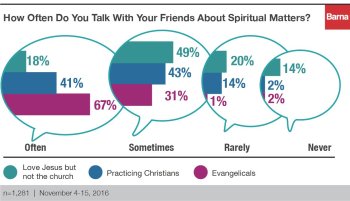
That’s a hard challenge when they mostly keep hush about their beliefs. Jesus followers who are unchurched talk about spiritual matters half as much as most practicing Christians, and four times less than evangelicals.
So who are they? The “love Jesus, but not the church” crowd is mostly white (61%) and mostly female (63%), according to Barna. They are nearly as likely to identify as Republican (25%) as Democrat (30%).
Previous Pew Research Center studies found that Hispanic Christians attend church more regularly than their white counterparts, and black Protestants are retaining young churchgoers at higher rates than any other group.
Believers who have given up on the church still pray (83%) and consider themselves spiritual (89%) about as much as fellow Christians, Barna reported. However, there’s a significant drop off when it comes to reading materials. They are half as likely to read Scripture and a quarter as likely to pick up spiritual books. Along with services, attending groups or retreats is totally out.
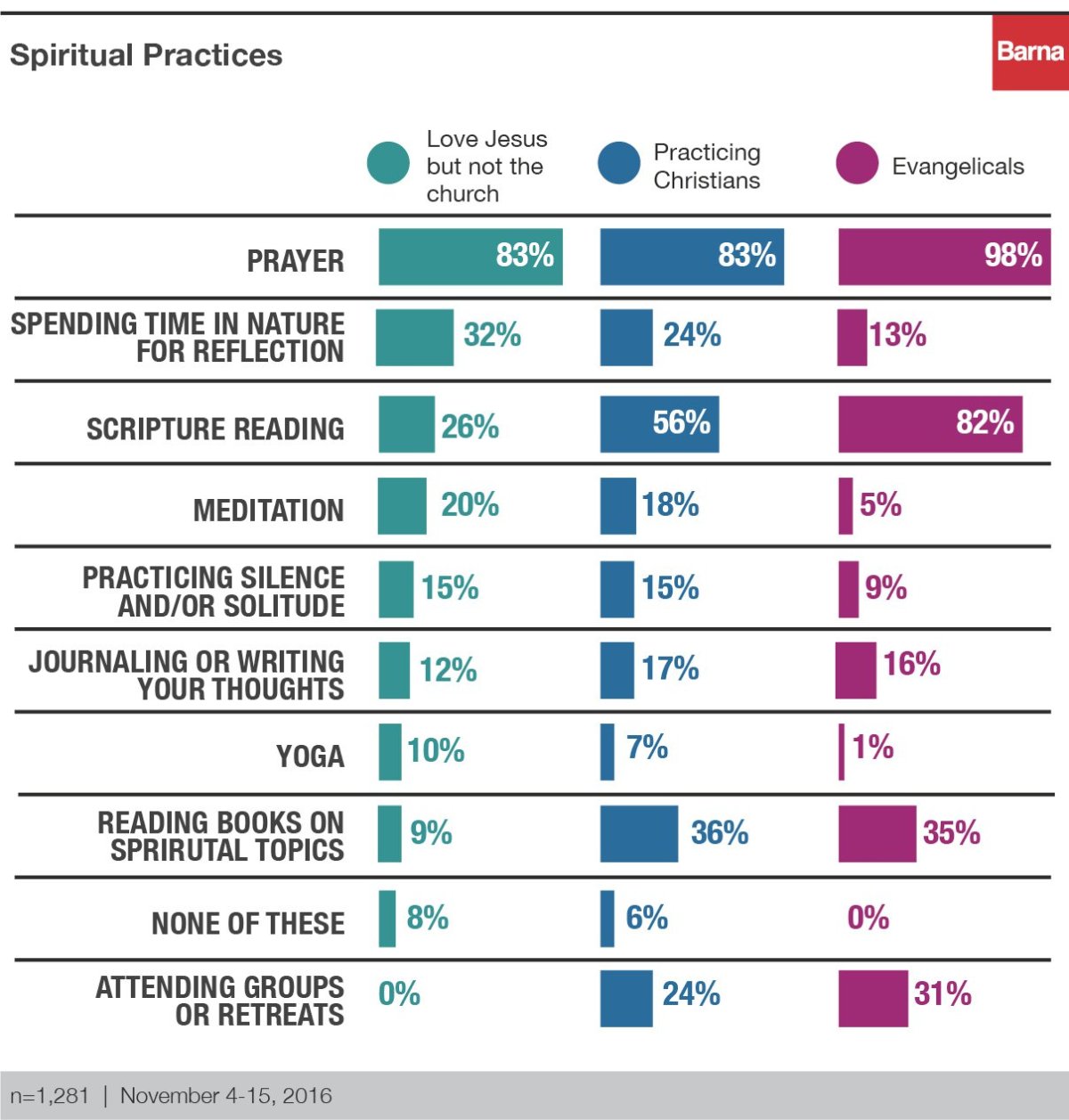
CT has previously discussed how it’s possible to be both spiritual and religious, the importance of loving the church, and what unchurched people think of Christians.


